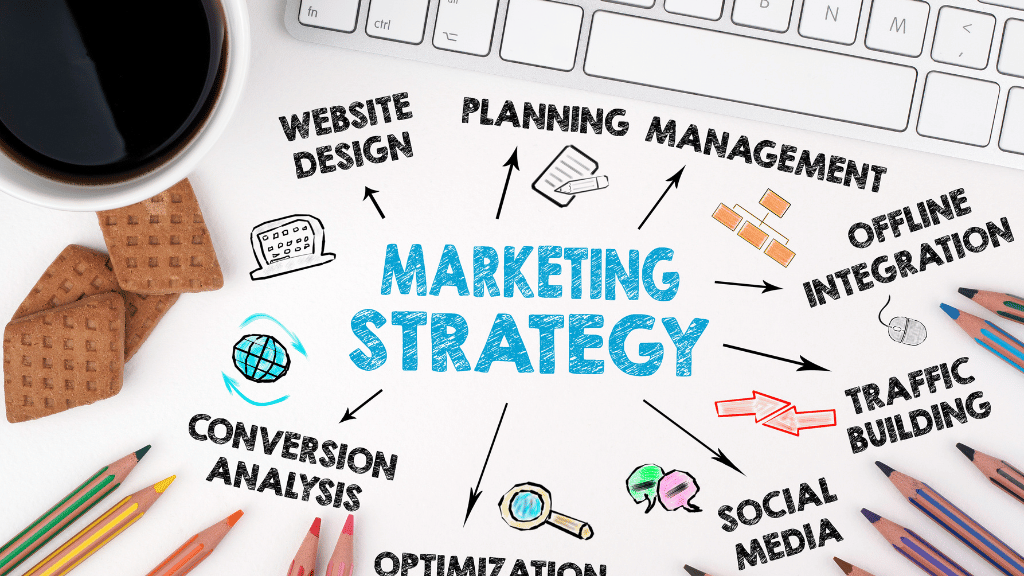A Comprehensive Guide for Wholesale Distribution
E-commerce has revolutionized the way businesses operate nowadays. Wholesale distribution, in particular, has seen a significant shift towards online platforms. When getting started with e-commerce for wholesale distribution, it's not only the distribution strategy that matters—it's also the legal and administrative foundation of your business.
Exploring options for establishing a legal entity, such as an LLC, can be a smart move. For guidance, checking out an incfile LLC review, for instance, can provide insights into services that assist with LLC formation and management.
Demystifying Ecommerce for Wholesale Distribution
Before delving into the intricacies of launching an ecommerce venture for wholesale distribution, it's crucial to grasp the concept itself. Ecommerce pertains to the digital buying and selling of goods or services. In the context of wholesale distribution, this involves the bulk sale of products to retailers, businesses, or other wholesalers through an online platform.
Unveiling the Advantages of Ecommerce for Wholesale Distribution

The allure of ecommerce for wholesale distribution extends beyond convenience. Here's a glimpse of its key advantages:
1. Extended Market Reach
By embracing ecommerce, you can transcend geographical boundaries. Your customer base is no longer confined to the local arena; instead, you can tap into national and even international markets.
2. Cost-Effectiveness
Traditional brick-and-mortar establishments entail considerable overhead costs. Ecommerce eliminates the need for a physical store, slashing expenses linked to rent, utilities, warehouse supplies, and staffing. Additionally, businesses that still manage inventory can streamline operations and reduce errors by integrating warehouse management software, ensuring efficient stock control without the overhead of a full retail setup.
3. Enhanced Convenience
E-commerce grants a 24/7 accessibility advantage. This convenience extends to both buyers and sellers, allowing customers to peruse and purchase products at their convenience.
4. Data-Driven Insights
Ecommerce platforms offer a treasure trove of analytical tools. These tools furnish invaluable insights into customer behavior, preferences, and purchasing patterns, enabling you to make informed decisions to optimize business strategies.
The Odyssey of Getting Started with Ecommerce for Wholesale Distribution
Step 1: Research and Strategic Planning
Before embarking on your ecommerce odyssey, meticulous research and strategic planning are the foundation. Here's your roadmap:
1. Define Your Niche
Identify the specific products or industry you intend to focus on. Assess market demand, competition, and potential profitability to make an informed choice.
2. Comprehend Your Target Audience
Gain deep insights into your target audience's needs, preferences, and pain points. This intelligence will serve as the bedrock for tailoring offerings and crafting effective marketing strategies.
3. Analyze Competitors
Study your competitors' ecommerce platforms. Identify their strengths, weaknesses, and unique selling propositions. This analysis will guide you in distinguishing your business and carving out a competitive edge.
4. Develop a Business Plan
Craft a comprehensive business plan outlining your objectives, strategies, and financial projections. This document will serve as your navigational tool throughout your ecommerce voyage
5. Social Media Integration
Engage your audience with real-time updates and customer feedback. This will enhance brand visibility and foster community and trust among your customers.
Step 2: Establishing Your E-commerce Presence
With a firm groundwork laid, it's time to forge your ecommerce platform. Here's the blueprint:
1. Select an E-commerce Platform
Opt for a robust and user-friendly e-commerce platform that aligns with your business requirements. Consider renowned options like Shopify, WooCommerce, and Magento Cloud Hosting.
2. Claim Your Domain Name
Choose a domain name that encapsulates your brand identity and is easily memorable. Register the domain through a reliable registrar or choose an aged domain that can give a great headstart as they’ll already have an authoritative link profile and trust signals.
3. Craft Your Website Design
Infuse your e-commerce website with your brand essence through captivating designs. Prioritize seamless user experience and professionalism. A skilled website designer can help craft a compelling website design for startups, ensuring a strong online presence that attracts and retains customers.
4. Curate Product Listings
Populate your e-commerce platform with your product inventory. Provide comprehensive descriptions, monitor inventory levels, high-resolution images, and accurate pricing details. To ensure accurate and efficient stock management, consider integrating inventory management software.
Step 3: Establishing Secure Transactions and Shipping Strategies
Efficient transactions and seamless shipping options are the bedrock of customer satisfaction. Here's how to ensure this:
1. Secure Payment Gateways
Integrate trustworthy and secure payment gateways into your platform. Consider options like PayPal, Stripe, and Authorize.net, using technologies such as Secure Shell (SSH) to protect sensitive data. For businesses operating in industries with higher chargeback risks, setting up a high risk merchant account ensures smoother transactions and better approval rates. Cater to diverse customer preferences with a variety of payment options.
2. Streamlined Shipping
Partner with reputable shipping carriers to offer dependable and cost-effective shipping solutions. Transparency is key; display clear shipping details, including rates, delivery times, and tracking mechanisms. To manage these shipping operations efficiently, Metrobi can coordinate carriers and provide clear tracking for customers.
3. Prioritize Security Measures
Safeguard your customers' personal and payment information. Employ SSL certificates and encryption protocols to fortify data security.
Step 4: Crafting an Effective Marketing Strategy
With your e-commerce platform operational, it's time to beckon visitors and drive sales through strategic marketing. Here's the formula:
1. Optimize for Search Engines (SEO)
Elevate your website's visibility by optimizing content, meta tags, and URLs for search engines. Embrace relevant keywords pertinent to your wholesale distribution niche.
2. Content Creation
Produce engaging and informative content encompassing blog posts, product guides, and industry insights. Provide valuable knowledge to your audience, establishing your authority within the wholesale distribution domain.
3. Leverage Social Media
Harness the prowess of social media platforms to promote products, interact with your audience, and channel traffic to your e-commerce hub. Tailor your strategy to platforms that resonate with your target demographic.
4. Work with Influencers
Collaborating with influencers can amplify your brand's reach and credibility. Influencers connect with niche audiences effectively, making them valuable partners for promoting your products. Learn more about how to work with influencers to boost your marketing efforts.
5. Harness Email Marketing
Cultivate an email subscriber list and orchestrate email marketing campaigns to nurture customer relationships. Extend personalized offers, product updates, and exclusive discounts to drive recurring purchases.
Final Words
Venturing into ecommerce for wholesale distribution is akin to setting sail on uncharted waters, rife with potential for reward.
By adhering to the steps elucidated in this guide, conducting diligent research, and implementing astute marketing strategies, you're poised to establish a flourishing online presence.
Adaptation and refinement, guided by market trends and customer feedback, are your companions on this expedition.
May your e-commerce voyage be one of triumph and transformation.






